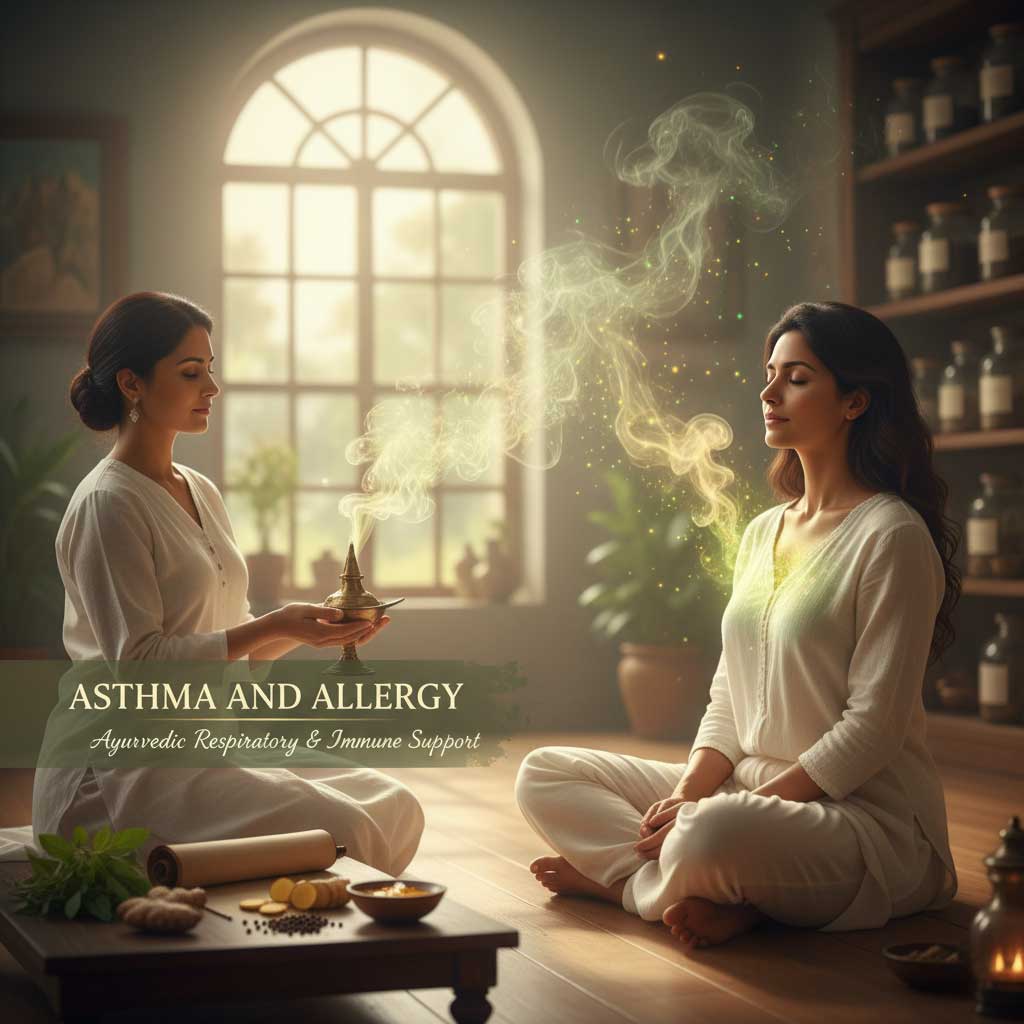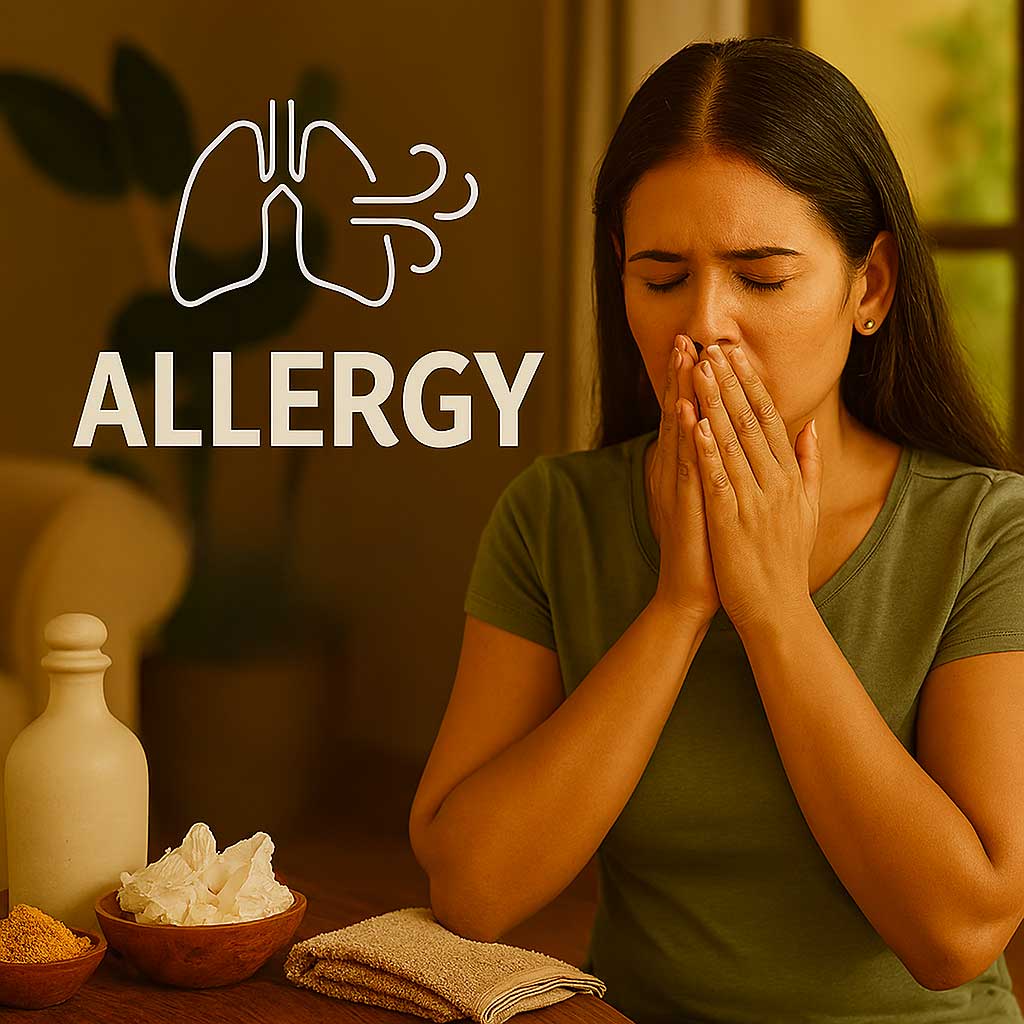Asthma and Allergy
Ayurveda provides a natural approach to managing asthma and allergy symptoms by focusing on respiratory health and immune resilience. Asthma, seen as a Vata-Kapha imbalance, can be treated with specific herbs and lifestyle adjustments to reduce mucus buildup and ease breathing. Commonly used herbs include tulsi, mulethi (licorice root), and pippali (long pepper), which strengthen the lungs and reduce airway inflammation. A daily intake of tulsi tea, for instance, clears mucus and reduces respiratory irritation, providing relief for asthma sufferers.
Asthma is a chronic respiratory condition where the airways become inflamed and narrowed, making it difficult to breathe. Symptoms often include wheezing, coughing, and shortness of breath, triggered by allergens, physical activity, or other irritants.

Supporting Treatment with Daily Rituals
Lifestyle practices are equally significant. Ayurveda encourages nasya, or nasal cleansing, with medicated oils like anupan oil, which lubricates the nasal passages and clears congestion. Dietary guidelines are also crucial, as asthma is exacerbated by cold, damp foods. A warm, kapha-balancing diet, rich in ginger, garlic, and turmeric, is recommended to reduce mucus and ease symptoms.
Lung Health
Ayurvedic herbs like Tulsi (holy basil), Vasaka (Malabar nut), and Licorice can help reduce inflammation, soothe the respiratory system, and prevent asthma attacks. Consuming a blend of these herbs with warm water can support lung health.
Balancing Diet
Ayurveda recommends a Kapha-balancing diet for asthma, which includes warm, light, and easily digestible foods. Avoid cold, heavy, and dairy-rich foods, as they can increase mucus production and worsen symptoms.
Clear Airways
Nasya, the nasal administration of herbal oils, can help clear nasal passages, reduce respiratory inflammation, and prevent triggers. Daily administration of medicated oils like Anu taila can help keep airways clear


FAQ's
Ayurveda sees the root cause as a digestive and respiratory imbalance (Kapha and Vata doshas), leading to toxin accumulation and hypersensitivity, rather than just treating symptoms.
Treatment involves personalized herbal formulas, detox therapies like Panchakarma to clear respiratory channels, and specific dietary changes to address the root cause of the imbalance.
Yes, they are generally safe and complementary. We work alongside your current medication, focusing on reducing long-term dependency under medical guidance. Never self-adjust prescriptions.
Initial improvements may be seen in weeks, but significant, lasting results require a committed course of treatment, often over several months, for deep-rooted healing.


